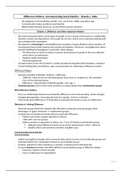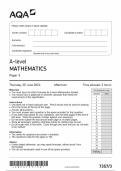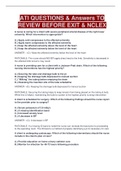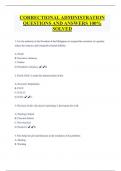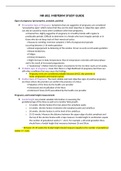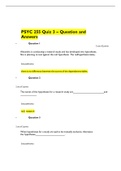Resume
Samenvatting Difference Matters + oplossingen v/d doelstellingen
Dit document bevat: - Samenvatting van het boek 'Difference Matters' van Brenda J. Allen hoofdstuk 1, 2, 3 en 9 (in het Engels) - Oplossingen bij de doelstellingen van het examen (in het Nederlands) - Linken tussen hoofdstuk 3 'Gender' en algemene te kennen concepten (in het Nederlands) Vak Interc...
[Montrer plus]
